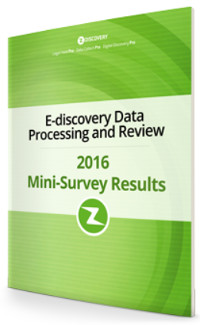Fitch, Even, Tabin & Flannery LLP will hold a complimentary webinar, “The Newly Amended Federal Rules of Civil Procedure: Making Sense of the Changes,” presented by Fitch Even partner Joseph F. Marinelli. The webinar will be Thursday, Jan. 21, at 9 am PST / 10 am MST / 11 am CST / 12 noon EST.
On Dec. 1, 2015, significant amendments to the Federal Rules of Civil Procedure went into effect. These changes are intended to make civil litigation more efficient by changing early case management procedures and discovery planning, clarifying the scope of discovery, and revamping the rules regarding the preservation of electronically stored information.
In this webinar, participants will take a closer look at the December rule changes, discussing what you need to know and the practical impact the rules may have on your practice, covering the following topics and more:
•Reorganization of Rule 26(b)(1) to bring proportionality factors to the forefront of scope considerations and elimination
•Change to Rule 26(d) that now permits a party to issue document requests in advance of parties’ Rule 26(f) discovery conference
•Revision of Rule 34 to require more specific objections and responses to document requests
•Revamp of Rule 37(e) to better address ESI preservation and loss
•Elimination of Rule 84 and the Appendix of Forms leading to a potential change in pleading requirements in patent infringement suits
The speaker will be Fitch Even partner Joseph F. Marinelli, an IP litigator with more than 15 years of hands-on courtroom experience and a diverse intellectual property law practice covering all aspects of IP creation, management, enforcement, and licensing. Marinelli has extensive experience litigating in popular patent venues including the Northern District of California, the Western District of Wisconsin, and the Eastern District of Texas, as well as representing clients in post-grant procedures before the USPTO.
CLE credit has been approved for California, Illinois, and Wisconsin, and is pending in Nebraska. Other states may also award CLE credit upon attendee request. There is no fee to attend, but please note registration is required.
Following the live event, a recording of the webinar will be available to view for one year at fitcheven.com.
Register for the webinar.

 ZAPPROVED has released the results of an online survey of 92 in-house legal staff about their methods of data processing — manual, in-house software or outsource to service provider. The survey then asked them to rate their satisfaction with their process based on three dimensions: cost, time and ease.
ZAPPROVED has released the results of an online survey of 92 in-house legal staff about their methods of data processing — manual, in-house software or outsource to service provider. The survey then asked them to rate their satisfaction with their process based on three dimensions: cost, time and ease. The effort to measure and manage legal risk pays dividends in the reduction of real losses from legal issues. It also pays dividends through improved collaboration between the legal team, operations, and senior management, writes Mark Little, compliance and risk management technology executive at
The effort to measure and manage legal risk pays dividends in the reduction of real losses from legal issues. It also pays dividends through improved collaboration between the legal team, operations, and senior management, writes Mark Little, compliance and risk management technology executive at